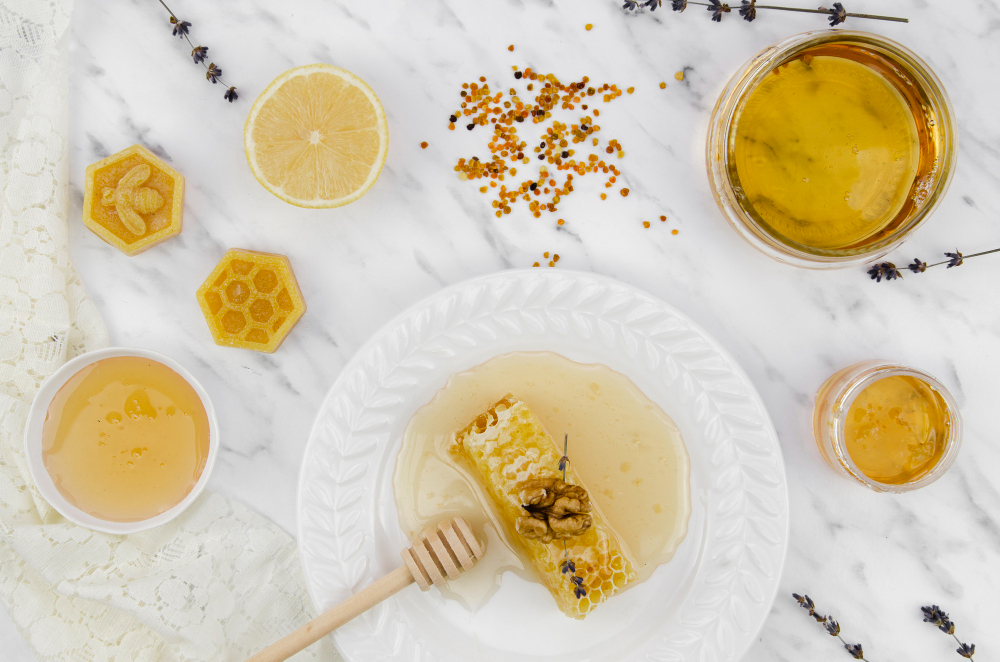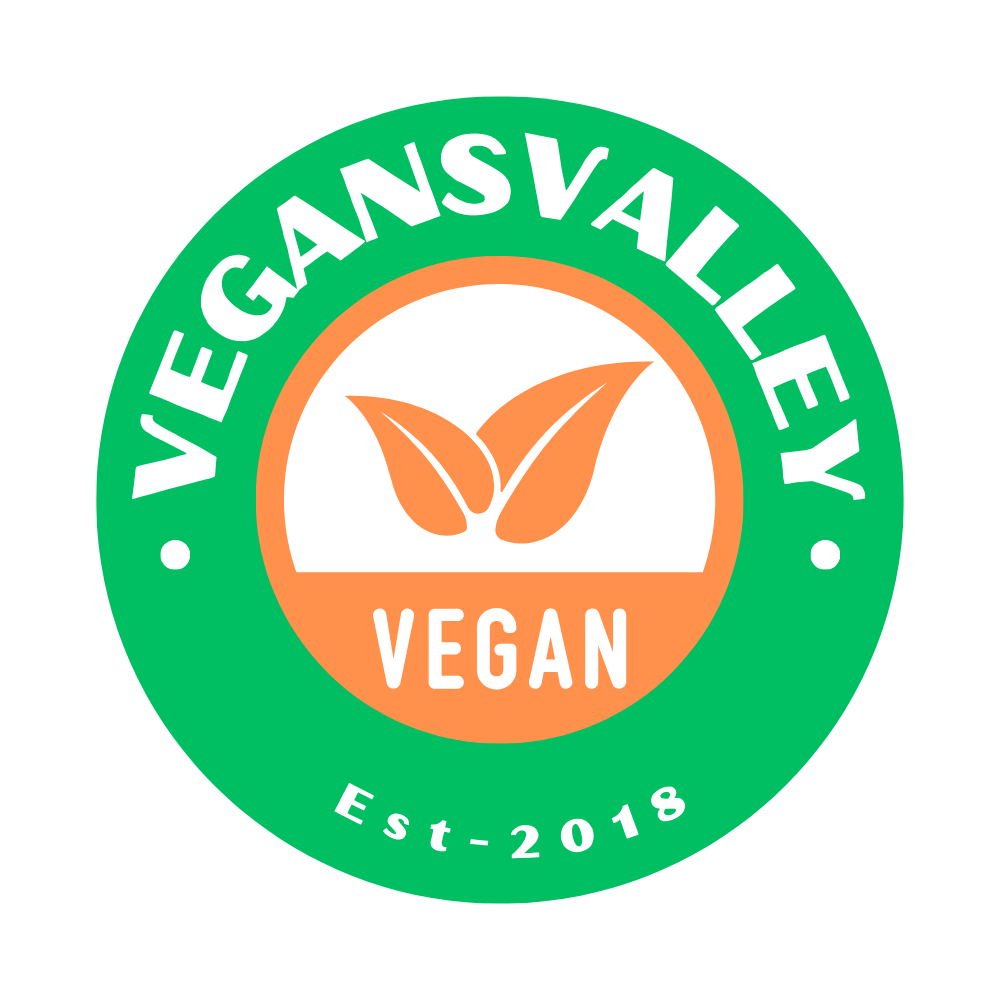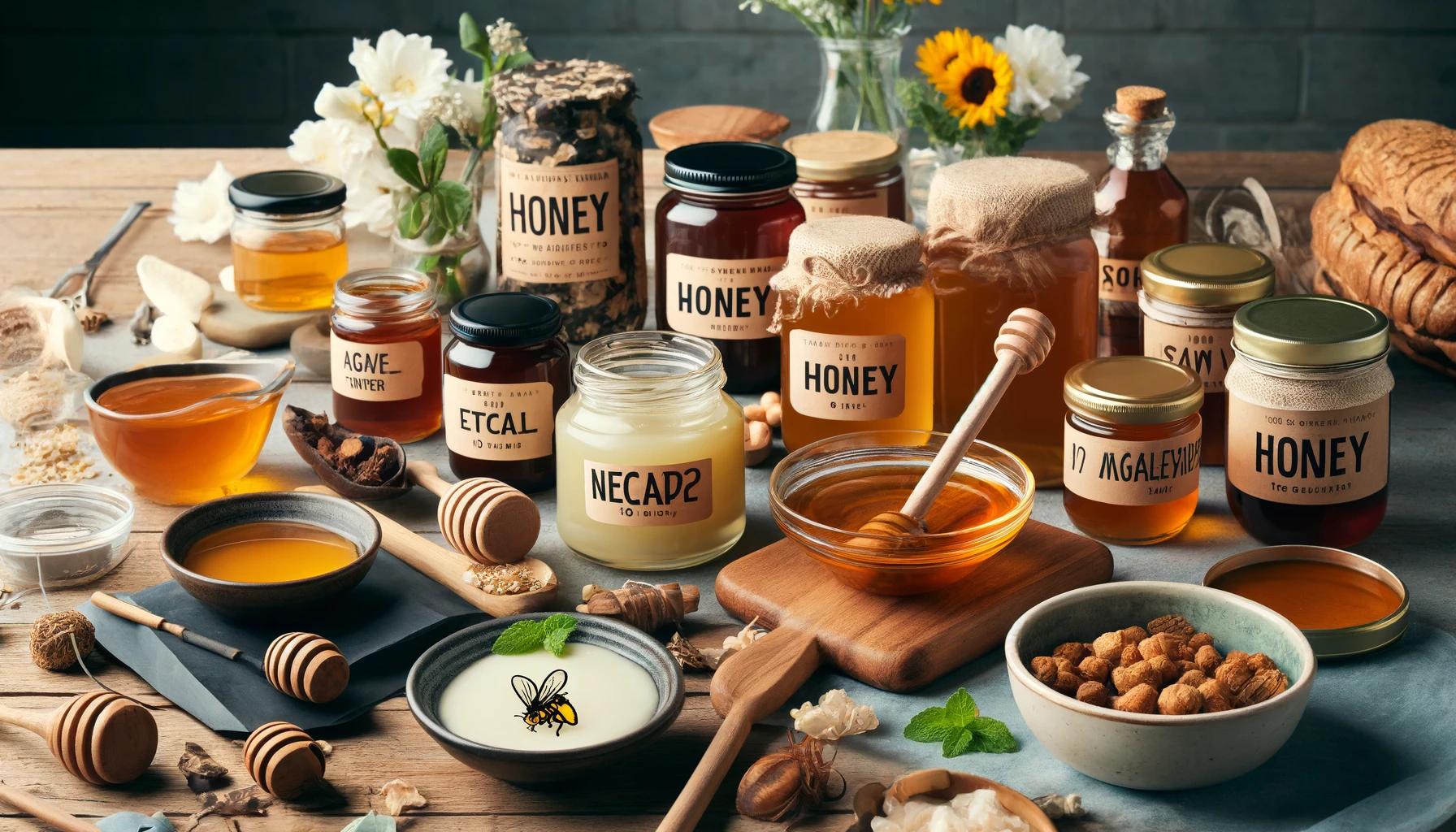Is Honey Vegan: 10 Ethical And Bee-friendly Alternatives To Use
Are you torn between your love for honey and your commitment to veganism? Wondering if honey truly aligns with your ethical values? You’re not alone. In this insightful blog post, we dive deep into the question: Is honey vegan?
But that’s not all—we’ve got 10 cruelty-free substitutes. They will sweeten your palate without compromising your principles. Say goodbye to the guilt and confusion as we explore ethical options. These options support bee welfare and align with your compassionate lifestyle. Let’s embark on a journey to discover delicious alternatives that respect both bees and your values.
What Is Honey?
Honey is nature’s golden nectar, crafted by bees from the nectar of flowers. Rich in flavor and nutrients, it has been cherished by humans for centuries as a natural sweetener and remedy. Its versatility extends beyond the kitchen, finding its way into skincare products and traditional medicine practices worldwide. Yet, the ethical implications of honey consumption have sparked debates among vegans and conscientious consumers.
While honey’s taste is undeniably delightful, its production raises concerns about the well-being of bees and sustainability. As we delve deeper into the question of whether honey is vegan, let’s explore alternatives that offer sweetness without exploitation.

How Is Honey Actually Made?
Honey-making is a fascinating process orchestrated by our buzzing friends, the bees. It all starts when bees collect nectar from flowers using their long, tubular tongues. They store this nectar in a special stomach called the “honey stomach.” Back at the hive, bees pass the nectar to other worker bees through regurgitation. These worker bees then chew and mix the nectar with enzymes, breaking down its complex sugars. Afterward, they spread the mixture into honeycomb cells and fan it with their wings to evaporate excess moisture. This process transforms the nectar into thick, delicious honey.
Is It Ethical To Eat Honey?
The question of whether consuming honey aligns with ethical principles is complex. While bees are extraordinary creatures, their exploitation in honey farming raises concerns. Commercial honey production often involves practices that may harm bee health and well-being. Bees are sentient beings capable of feeling pain, and the process of honey extraction from the hive can be distressing for them.
Moreover, the demand for commercial crop pollination puts additional stress on honeybee populations, contributing to their decline. Some argue that harvesting honey deprives bees of their food source and disrupts their natural behavior. Additionally, the practice of feeding bees ‘bee milk’ to stimulate honey production is controversial.
As bee populations face threats from habitat loss, pesticides, and diseases, it’s crucial to consider the impact of honey consumption on these vital pollinators. While opinions vary, many individuals opt for bee-friendly substitutes to support bee welfare and promote sustainable food practices.
Do Vegans Eat Honey?
Many vegans choose to abstain from consuming honey due to ethical considerations. While honey is a natural product, its production involves the exploitation of bees. Vegans advocate for the ethical treatment of all animals, including insects like bees. They believe that harvesting honey disrupts the bees’ natural habitat and may cause harm to bee populations. Thus, in their commitment to animal welfare, many vegans opt for alternative sweeteners that don’t involve the use of animal products.
10 Best Vegan Honey Substitutes
Get ready to sweeten your dishes guilt-free! We’ve curated a list of the top 10 vegan honey substitutes that will satisfy your cravings without harming bees. From natural plant-based options to innovative alternatives, these sweeteners offer a delicious way to enjoy the taste of honey while staying true to your values.
1. Agave Nectar
Derived from the agave plant, agave nectar is a natural sweetener with a mild flavor profile. It’s a popular vegan alternative to honey, offering a similar viscosity and sweetness. Agave nectar is often used in baking, cooking, and sweetening beverages due to its versatility and low glycemic index.
2. Maple Syrup
Maple syrup, harvested from the sap of maple trees, offers a delightful alternative to honey. Its rich, amber color and distinct flavor add depth to a variety of dishes, from breakfast pancakes to savory marinades. Maple syrup is a natural sweetener packed with antioxidants and essential minerals like manganese and zinc.
3. Date Syrup
Made from dates, date syrup offers a sweet and caramel-like flavor profile that makes it a fantastic honey substitute. It’s rich in nutrients like potassium, magnesium, and fiber, adding a nutritional boost to your recipes. Date syrup is a versatile sweetener ideal for baking, drizzling over desserts, or adding to sauces and dressings.
4. Coconut Nectar
Coconut nectar is extracted from the sap of coconut blossoms. It has a subtle sweetness and hints of caramel flavor. Coconut nectar is rich in vitamins, minerals, and amino acids, making it a nutritious choice for your recipes.
5. Rice Syrup
Rice syrup, also known as rice malt syrup, is a sweetener made from cooked rice starch. It has a mild flavor and a thick, syrupy consistency, making it a versatile honey alternative. Rice syrup is a vegan-friendly option that adds sweetness to your dishes.
6. Applesauce
Applesauce is made from cooked and mashed apples. It offers a fruity sweetness that complements a variety of recipes. It also adds moisture and flavor to baked goods without the need for added sugars.
7. Fruit Syrups
Fruit syrups, such as raspberry, strawberry, or blueberry syrup, offer a burst of natural sweetness derived from fresh fruits. They provide a delightful fruity flavor profile. These syrups can be used in various dishes, including desserts and pancakes, adding a delicious twist to your creations.
8. Molasses
Molasses is a thick, dark syrup derived from the processing of sugarcane or sugar beets. It offers a robust, slightly bitter-sweet flavor that enhances baked goods and savory dishes. Molasses is rich in vitamins and minerals like iron, calcium, and potassium. This makes it a nutritious option for sweetening recipes while staying vegan-friendly.
9. Raw Sugar
Raw sugar is also known as turbinado sugar or demerara sugar. It is a minimally processed cane sugar that retains some of its natural molasses content. It offers a slightly caramelized flavor and coarse texture. Raw sugar is a cruelty-free alternative to honey.
10. Sorghum Syrup
Sorghum syrup, often called sorghum molasses, is a sweet syrup made from the juice of sorghum cane. It boasts a deep, rich flavor with hints of caramel and molasses. Sorghum syrup is a versatile sweetener used in baking, cooking, and drizzling over pancakes or waffles.
9 Top Vegan Honey Brands
We’ve compiled a list of the top brands that offer delicious honey alternatives without any bee exploitation. These brands prioritize sustainability, ethical sourcing, and great taste. They ensure you can enjoy the sweetness guilt-free while supporting bee-friendly practices. Let’s dive into our list!
- Vegan Un-Honey
- Herbivore’s Honi
- Mellody by MeliBio
- Suzanne’s Specialties Just-Like-Honey
- ULTxBEE via VeganDukan
- Plant Based Artisan’s Honea
- D’vash Organics
- Bumble Bloom
- Barley Malt Syrup
Vegan Honey Recipe
Get ready for a simple and quick vegan honey recipe that you can whip up in no time! With just a few basic ingredients and easy steps, you’ll have a delicious honey alternative.
Ingredients:
- 1 cup of granulated sugar
- 1 cup of water
- 1 tablespoon of lemon juice
Instructions:
- In a saucepan, combine the granulated sugar and water over medium heat.
- Stir until the sugar dissolves completely.
- Bring the mixture to a gentle boil, then reduce the heat to low.
- Simmer the mixture for about 15-20 minutes until it thickens to a honey-like consistency.
- Stir in the lemon juice and continue simmering for another 5 minutes.
- Remove from heat and let it cool before transferring to a jar or container.
- Your homemade vegan honey is ready to use in your favorite recipes!
FAQ On Vegan Honey
Is Honey A Plant Or Animal Product?
Honey is considered an animal product because it is produced by bees. While bees collect nectar from flowers, they transform it into honey through a process of regurgitation and evaporation in their hives. Thus, even though honey comes from plant sources originally, the transformation process involves the labor of bees, making it an animal-derived product.
Why Vegans Don’t Use Honey?
Vegans refrain from using honey because its production involves the exploitation of bees. Commercial honey farming practices often involve removing honey from hives. This can disrupt bee colonies and their natural behavior.
Additionally, some vegans view the act of exploiting bees for honey as inconsistent with their values of respecting all living creatures. Therefore, many vegans opt for alternative sweeteners that don’t involve the use of animal products, supporting ethical and sustainable practices.
What Is The Percentage Of Vegans Who Eat Honey?
There isn’t an exact percentage, but many vegans choose to avoid honey due to ethical concerns. While opinions may vary among individuals who follow a vegan lifestyle, a significant portion abstain from consuming honey to align with their values of cruelty-free living and animal welfare.
Does Vegan Honey Exist?
Yes, vegan honey alternatives do exist. These alternatives are crafted from plant-based ingredients. They mimic the taste and texture of traditional honey without the need for bee exploitation. Vegan honey options are available in various forms. They offer a cruelty-free alternative for those who prefer to avoid animal products.
What Do Vegans Use Instead Of Honey?
Vegans use a variety of alternatives to honey, prioritizing cruelty-free options. They include agave nectar, maple syrup, date syrup, coconut nectar, and more. These plant-based sweeteners offer similar sweetness and versatility to honey, making them ideal substitutes in recipes and beverages.
Are Manuka And Acacia Honey Vegan?
Manuka and Acacia honey are not considered vegan because they are produced by bees. So, vegans typically avoid consuming them due to ethical concerns regarding bee welfare.
Is Honey Powder Vegan?
Honey powder undergoes a dehydration process, but it still originates from an animal-derived product. Therefore, it is not considered vegan.
Does Honey Expire?
Honey has an indefinite shelf life due to its high sugar content and low moisture levels. While honey may crystallize over time, it remains safe to consume.
Is It Safe To Eat Raw Honey?
Raw honey is generally safe to eat for most people. However, infants under one year old should avoid consuming raw honey due to the risk of botulism. It may contain bacteria spores that can be harmful to infants’ immature digestive systems.
Can Bacteria Grow In Honey?
Bacteria generally cannot grow in honey due to its low moisture content and acidic pH levels. The high sugar concentration in honey creates an inhospitable environment for bacteria to thrive. Yet, honey may contain dormant bacterial spores, which do not multiply or cause harm under normal conditions.
Can Dogs Eat Honey?
In moderation, dogs can safely consume honey. It can provide them with some health benefits, such as soothing sore throats or providing a natural source of energy. But it’s important to avoid feeding honey to dogs with diabetes or obesity, as it contains sugar and calories.
Start Using Honey Alternatives And Help The Bees
By opting for vegan honey alternatives, you can enjoy sweetness guilt-free while supporting bee welfare and sustainable practices. These substitutes offer delicious flavors without exploiting bees or harming the environment. From agave nectar to maple syrup and beyond, there are numerous options to explore.
Making the switch not only aligns with ethical values but also contributes to preserving bee populations and promoting biodiversity. Together, we can make a positive impact on our planet and ensure a brighter future for bees and all living creatures. Let’s choose bee-friendly alternatives and sweeten our lives responsibly.

